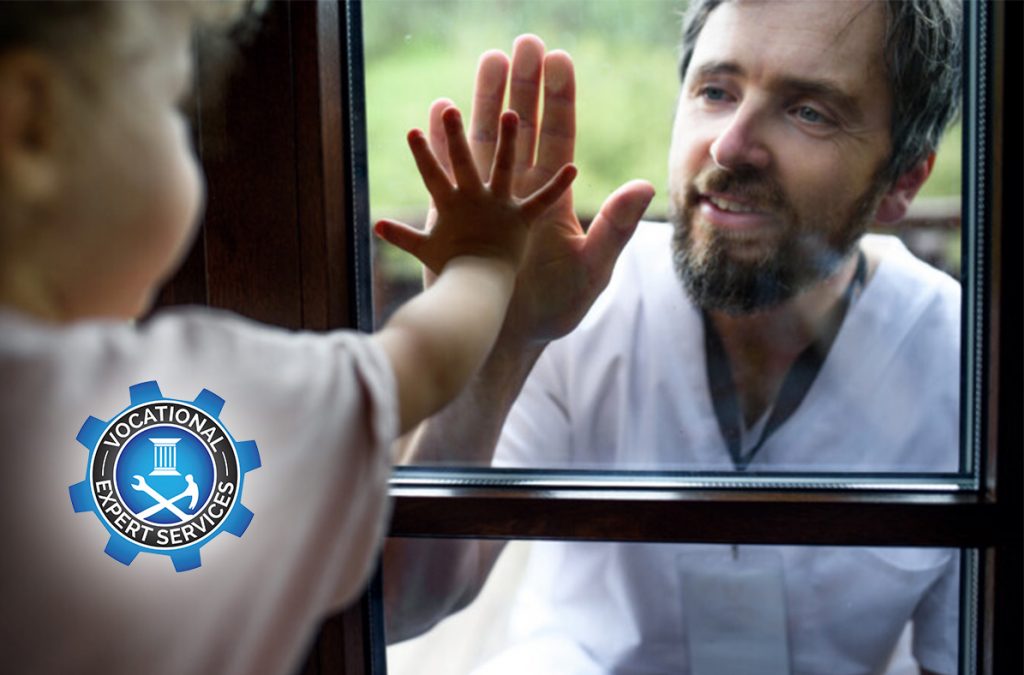A vocational evaluation is a useful tool for divorce cases, providing a wide variety of information. A vocational evaluation may be used to determine an individual’s ability to work, wage earning capacity, and which jobs are available in the local labor market. Both formal and informal types of data can be obtained from vocational evaluations. Informal data includes information that can be gathered from interviews and observation, and data is performance driven (Barros-Bailey, 2020). Formal data includes data that has supporting conclusions and/or interpretations, such as standardized tests (Barros-Bailey, 2020). With this information, a vocational expert can provide a vocational picture of an individual.
Teleconferencing Software Enables Vocational Evaluations
Prior to COVID-19, vocational interviews and vocational testing were mainly conducted in person. While vocational interviews still occur, COVID-19 has impacted how they are conducted. There are precautions that have been put in place to ensure the health and safety of the vocational expert and the evaluee, all following the Centers for Disease Control and Prevention (CDC) regulations. For example, interviews which were face-to-face prior to the pandemic are now being conducted via phone or a teleconferencing software such as Zoom or Microsoft Teams.
Testing Precautions for Teleconferenced Vocational Tests
Various vocational tests are available to be proctored via a teleconferencing software. This allows the vocational expert to conduct the proctoring remotely and may be an option when the vocational expert “can support that the integrity of the test administration is preserved within this adapted format” (WPS, 2019). The expert must consider factors such as evaluee considerations, security requirements, copyright, connectivity and hardware requirements, and score reporting. Also, remote proctoring precautions need to be followed prior to testing. For example, prior to proctoring a vocational test, the identity of an evaluee is verified by visibly seeing the evaluee’s license or State ID card in the teleconferencing software being used to confirm that the correct person is testing. Additionally, the evaluee shows the proctor the workspace and walks around the room in order to demonstrate that he/she is alone and there are no unauthorized materials or aids.
Conducting Vocational Evaluations with Your Safety in Mind
While COVID-19 has changed the manner in which interviews and vocational testing are conducted due to the health and safety of the vocational expert and evaluee, various tests have protocols for virtual or remote proctoring. Vocational experts can utilize appropriate teleconferencing software and tools to aid in the remote administration of tests and still collect the formal data necessary. While changes and adaptations have occurred, it is possible to maintain the safety of all parties involved, ensure that the appropriate manufacturers’ and CDC guidelines are being followed, and obtain the information needed for a vocational evaluation.
References
Barros-Bailey, M. (2020). Best Practices in Remote Assessment [PowerPoint presentation]. International Association of Rehabilitation Professionals Conference, Virtual Conference, United States.
https://ct.counseling.org/2020/09/making-the-new-normal-five-tips-for-providing-teletherapy/
Western Psychological Services (WPS) (2019). Statement on Tele-Assessment. Retrieved on February 10, 2021 from https://pages.wpspublish.com/en/wps-tele-assessment-statement

